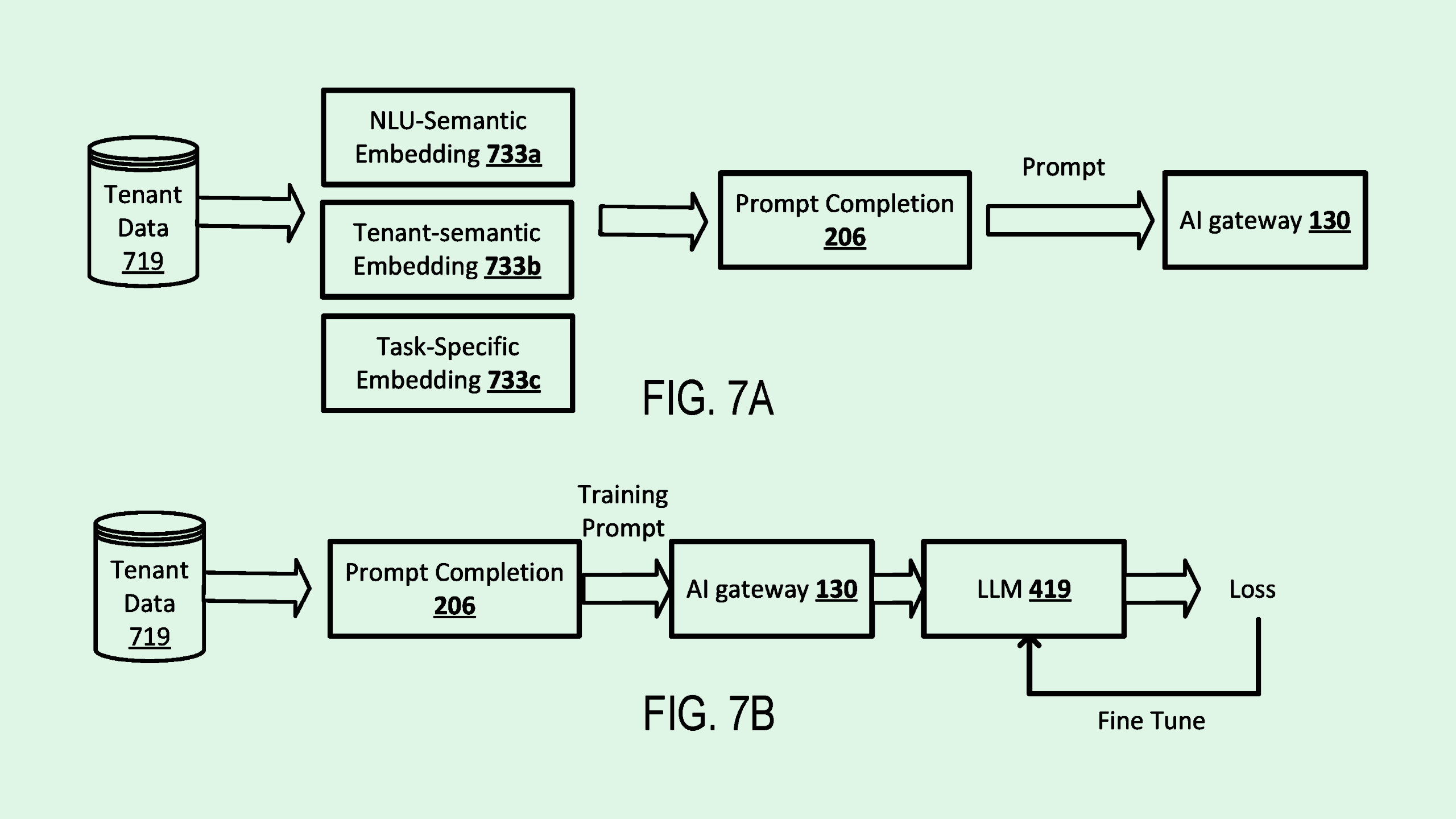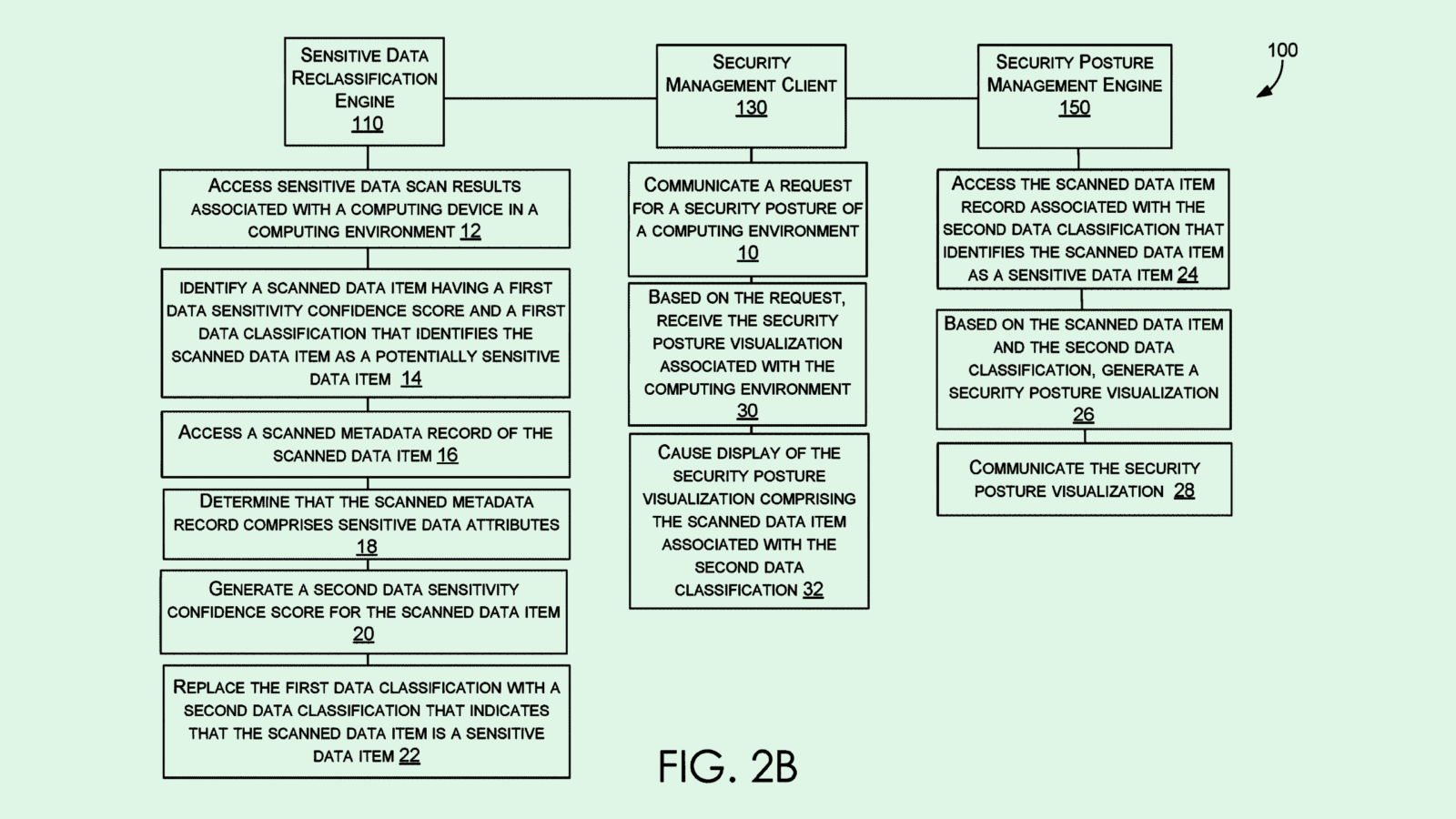Salesforce Patent Signals Personalization as AI’s ‘Third Wave’
Salesforce’s recent patent for customizable models highlights the company’s vision of personalized agents as the future of AI.

Sign up to uncover the latest in emerging technology.
Salesforce wants AI models to work for you, specifically.
The tech firm filed a patent application for systems for “building a customized generative artificial intelligent platform.” Salesforce’s filing details ways to use a general, foundational AI model and personalize it to individual businesses’ needs.
“Machine learning systems have been widely used in building automatic chatbots,” Salesforce said in the filing. “However, training and deploying a neural network model may be costly and time consuming.”
To break it down, Salesforce’s tech would allow businesses to easily design AI-based applications specifically for their needs, as well as customize a model’s generative capabilities by feeding it relevant and specific prompts.
To better fit a company’s needs, this tech leverages an organization’s internal data — i.e., customer relationship management data — so it can more accurately answer requests and complete tasks. This system can work in tandem with commercially available AI models, such as OpenAI’s GPT, or internal models to maintain data privacy.
Salesforce’s framework can also switch between different AI model providers through one standard interface, making it easier to utilize different models for separate tasks without complicated integrations. This allows businesses to use the best model for any given context with little technical fuss.
Personalization is the next big thing in AI — at least, if Salesforce has anything to say about it. Last week at Dreamforce, the company’s annual tech conference, CEO Marc Benioff proclaimed that personalized AI agents — without needing significant technical expertise — will be the “the third wave of AI.”
This followed the announcement of its new service Agentforce, a productivity tool designed for sales, marketing, and customer service. “I don’t think you can DIY this — you want a single, professionally managed, secure, reliable, available platform,” Benioff said at the event.
And it makes sense why Salesforce is going in the direction of personalized, seamless AI, said Bob Rogers, Ph.D., the co-founder of BeeKeeperAI and CEO of Oii.ai. In enterprise contexts, serious friction or even just a “few bad results” can make clients turn away from a service entirely, he said.
“It’s very hard to adopt generic AI tooling in these contexts because of privacy and safety and, frankly, just accuracy,” said Rogers.
Though companies like Google, Microsoft, and OpenAI have largely taken up the spotlight in the AI market, Salesforce has long been an “unsung hero of AI,” said Rogers. The company isn’t building massive, foundational models; its focus has largely been on bringing AI to the “day-to-day life of individuals in enterprise,” said Rogers.
Einstein, its umbrella of personalized generative AI tools, was a “very good effort to create low-code AI customization,” said Rogers. Agentforce seems to be the next iteration of this vision. “[Salesforce] has been bringing AI to the people in meaningful ways for a long time,” said Rogers.











